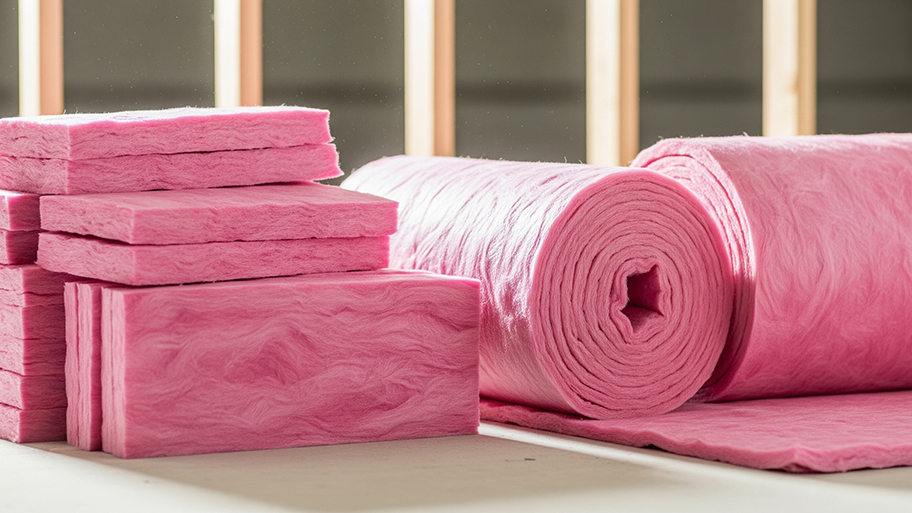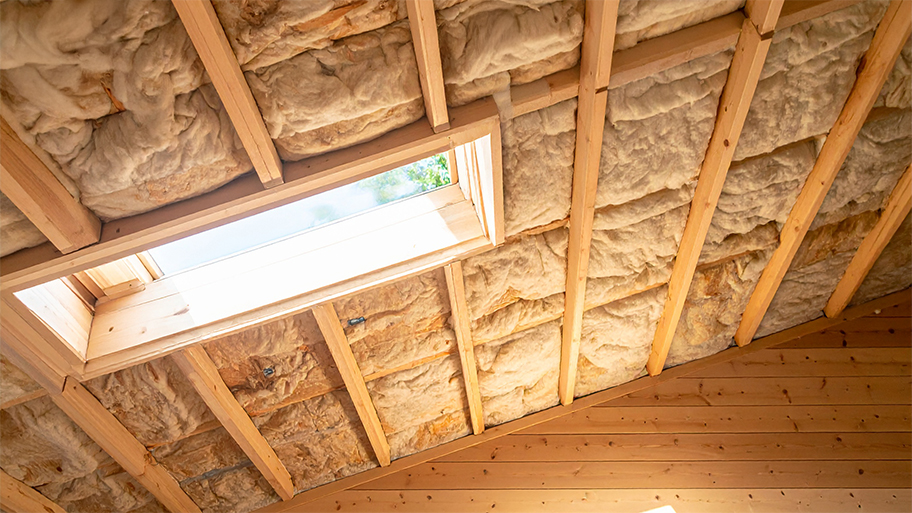
Crawl space insulation costs vary by size, insulation type, and material. Read this guide to learn how much your crawl space insulation could cost.
An insulation pro is the best person to hire for this gig


Insulation is a hidden, but very necessary component in any home. If you need to install new insulation, you may wonder: who installs insulation? Whether you're building a new home or upgrading an older one, learn why an insulation company near you can ensure the job is done safely and correctly.
While it may be tempting to DIY this project to save some money, insulation installation is a serious business. Mishandling can damage your health and prevent your home from being as energy-efficient as it could be. Below are some of the benefits associated with hiring a pro to help with this project.
Expert knowledge: An insulation company can recommend the best type of insulation for your home—whether fiberglass, spray foam, or cellulose—based on your climate, budget, and energy efficiency goals.
Experience with building codes: They will also know how to adhere to local building codes and can ensure the installation meets legal standards, which helps avoid future issues.
Have specialized tools: You can save on labor by doing this project yourself, but will need to invest in the right tools. Professionals are equipped with specialized tools, allowing them to perform the installation quickly and safely, minimizing the risk of gaps, air leaks, or damage to your home.
Help with energy savings: Depending on the quality of the installation, insulation can save on energy bills. A professional insulation company can help maximize energy savings by properly sealing and insulating areas where air loss is common, such as attics and crawl spaces.

A general contractor can install insulation as part of a larger home improvement or construction project. While many contractors specialize in various trades, including framing, drywall, and roofing, they also handle insulation installation.
If the insulation job is straightforward, a general contractor may handle it directly. However, for more complex insulation needs, such as spray foam insulation or projects that require specialized knowledge of ventilation and building codes, a contractor may hire a subcontractor who specializes in insulation.
It's always a good idea to ask your contractor about their experience with insulation and whether they plan to handle it themselves or bring in a specialist to ensure the job is done correctly and meets energy efficiency standards.
One way to save on insulation installation costs is to tackle this project on your own. However, there are several factors to consider before taking on this project yourself. For smaller areas, like adding batt insulation to easily accessible spaces, DIY may be feasible for those with basic handyperson skills. However, more complex insulation jobs—such as insulating attics, crawl spaces, or walls—require proper tools and knowledge of building codes, making professional expertise crucial.
Safety is a major concern when DIYing insulation. Some materials, like fiberglass, can irritate skin and lungs, and improper handling may lead to health issues. Insulating confined spaces may expose you to mold, pests, or electrical wiring, increasing the risk of injury. Moreover, incorrectly installed insulation can lead to gaps and air leaks, reducing energy efficiency and comfort.
Hiring a professional ensures the job is done safely and effectively, reducing long-term risks like moisture buildup, structural damage, and high energy bills. For larger projects, professional installation is the safer, more efficient choice.
The cost of installing insulation in your wall or other areas of your home can vary widely, with the average U.S. homeowner spending about $1,850. How much you’ll spend depends on factors such as the type of insulation, square footage, site location, and material chosen. Prices can range from $500 to $4,500.
Insulation costs between $0.30 and $6.75 per square foot, so it's essential to consider your specific needs. Factors like the chosen insulation material and the areas of your home (such as ceiling insulation versus walls) will ultimately determine your exact price. For example, wool insulation costs more than cellulose or fiberglass.
If you hire an insulation company to install fresh insulation in your home, expect them to follow these steps:
Do an assessment: First, they inspect the home to determine which areas need insulation, evaluating walls, attics, and crawl spaces.
Preparare for the project: Next, they prepare the area by sealing gaps or cracks to prevent air leaks and ensure the insulation performs effectively.
Select materials: Based on the space's specific needs, an insulation company chooses the appropriate insulation type, such as fiberglass batts, spray foam, or blown-in cellulose.
Install the materials: The insulation is then installed, either by laying batts in walls, spraying foam into cavities, or blowing loose fill into attics.
Finish a final inspection: After installation, the pros check for any missed spots and ensure proper coverage to maximize energy savings.
This careful process helps reduce energy costs and improve comfort throughout the home.
From average costs to expert advice, get all the answers you need to get your job done.

Crawl space insulation costs vary by size, insulation type, and material. Read this guide to learn how much your crawl space insulation could cost.

Insulating your attic can massively improve your home’s efficiency and reduce electric bills. Use this guide to find out what attic insulation will cost you.

Learn the key factors that influence the cost of renting a blown-in insulation machine.

There are 10 types of insulation you can use for your home. Read this guide to discover which insulation types could be best for the job.

Weigh the pros and cons of spray foam insulation before choosing an insulation to keep your home comfortable.

Our guide walks you through how to insulate a garage, including the walls, ceiling, and the garage door, in eight steps.